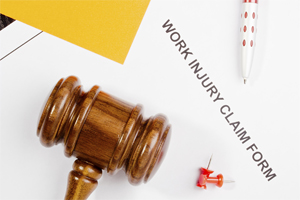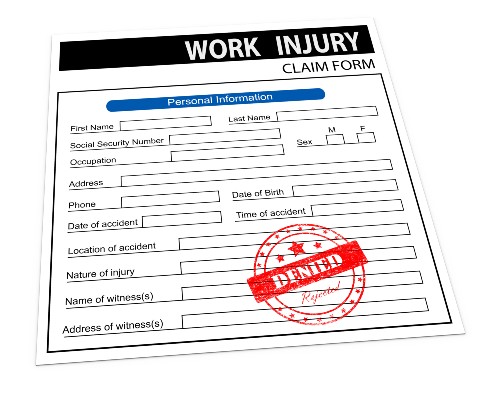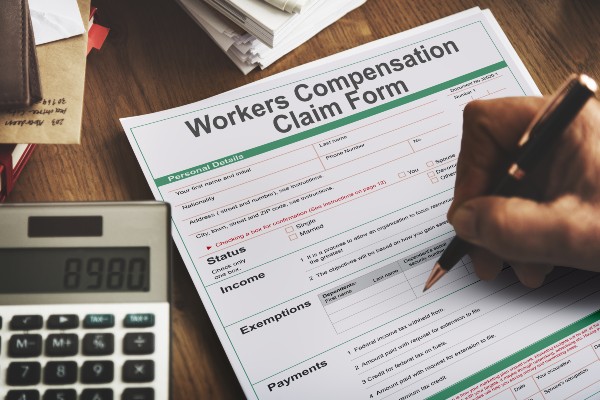 Workers’ Compensation Law in Florida
Workers’ Compensation Law in Florida
Florida’s workers’ compensation is a system for handling claims by employees who suffer work-related injuries or occupational diseases. The system provides that employees be guaranteed benefits through workers’ compensation insurance without having to prove their employer was at fault. Injured workers’ give up their right to sue their employer in court in exchange for this state-mandated benefit.
Workers’ comp cases are often quite complex, but the Broward and Palm Beach County workers’ compensation attorneys at the law firm of Sternberg | Forsythe, P.A. are dedicated to guiding clients through the system.
Navigating the ins and outs of the Florida workers’ compensation system is easier said than done. From maintaining records and evidence to file a claim (and possibly an appeal), there’s no shortage of steps to take. Fortunately, as you learn more about Florida workers’ compensation laws — as well as how an experienced Florida workers’ comp lawyer can assist you — it becomes easier to understand your legal rights and what you must do to protect them.
Workers’ Compensation Is A No-Fault Insurance
If you have been injured on the job, you don’t have to worry about the cause.
The Florida workers’ compensation insurance system focuses solely on where your accident and related injuries occurred. The fault does not come into play.
This is a benefit to you, the worker, as you don’t have to partake in an investigation to determine who caused the accident.
How Do Workplace Injuries Happen?
An accident can happen at any place of employment ranging from construction sites to office buildings to restaurants.
Furthermore, there’s no shortage of causes. Here are some of the most common:
- Failure to follow safety procedures
- Unsafe working conditions
- Inclement weather
- Defective equipment
- Heavy machinery
- Motor vehicle accident (when driving for work)
- Inadequate training
- Slip and fall
- Fall from height
Even if your employer has safety procedures in place and you follow them down to every last detail, you could still suffer an injury in a workplace accident.
Most Common Workplace Injuries
There’s no way of knowing what will happen if you’re involved in a workplace accident. For example, two workers’ could be part of a similar accident and there’s no guarantee of the same injuries.
Here are some of the most common workplace injuries:
- Broken bones
- Concussion and traumatic brain injuries
- Paralysis
- Soft tissue injuries
- Lacerations
- Burns
- Neck and back injuries
- Eye injuries
- Amputation
- Whiplash
- Hearing loss
In some cases, an accident will result in multiple injuries. An example of this is a fall from a height. This could result in a traumatic brain injury, along with broken bones and soft tissue injuries.
What To Do After A Workplace Accident
A workplace accident has the potential to immediately turn your life upside down. Even if you only suspect minor injuries, it can result in a variety of questions, concerns, and challenges.
You can alleviate some of the stress by taking the right steps at the right time. Here’s what you should do after a workplace accident:
- Assess your injuries: Stop what you’re doing, stay where you are, and assess your injuries. This will help you to better understand the severity and what to do next.
- Seek medical treatment: Since it’s always better to be safe than sorry, it never hurts to call 911 to request an ambulance. Depending on your injuries, you could also ask a co-worker to drive you to a local hospital or urgent care facility.
- Report the accident: It’s best to report the accident on the day that it happens. If you’re unable to do so, ask a co-worker to inform your supervisor and/or HR department. You can then follow up as time and your health allow.
- Follow the guidance of your medical team: This is critical to your health as well as your ability to obtain workers’ compensation benefits.
- File a claim for workers’ compensation benefits: You have two years from the date of your injury to file a claim for workers’ compensation benefits. Missing this deadline prohibits you from receiving benefits.
Taking these steps ensures that you’re doing what’s best for your health, career, and financial circumstances.
Who is covered by Workers’ Compensation in Florida?
Florida law states that any employer with four or more employees — part-time or full-time — is required to carry an active workers’ compensation insurance policy.
However, there are some special considerations, including:
- Sole proprietors and partners: Both sole proprietors and partners are excluded from Florida workers’ compensation law, but they have the opportunity to purchase coverage by filing for an election of coverage.
- Agricultural businesses: Any agricultural business with six or more employees and/or 12 or more seasonal employees who work for more than 30 days per year is required to purchase coverage.
- Construction business: Construction businesses are required by Florida law to carry workers’ compensation insurance for every employee, as well as contractors. Contractors are legally responsible for ensuring that any subcontractors provide coverage to their workers’.
If you’re unsure if your company is required to carry workers’ compensation insurance, consult with your HR department.
Understanding Workers’ Compensation Benefits in Florida
Upon filing a workers’ compensation claim in Florida, it’s good practice to understand the types of benefits that are available. You may not qualify for all of them, but there are likely to be several that suit your situation.
- Medical benefits, including authorized, medically necessary doctor and specialist visits, hospitalization, treatment, physical therapy, tests, prescription drugs, and prostheses
- Mileage reimbursement for travel to medical treatments and appointments
- Lost wages
- Temporary total disability benefits
- Temporary partial disability
- Impairment benefits
- Permanent total disability benefits
- Death benefits, including funeral expenses and compensation to surviving spouses and dependents
When you’re injured at work, one of your first thoughts may be how you’re going to pay your bills if you can’t report to work during your recovery. Other times, workers’ worry they won’t qualify for benefits if their injury isn’t quite bad enough to keep them off the job entirely.
Fortunately, workers’ compensation claim is available for the majority of workers’ injured in Florida, regardless of whether your injury requires you to take time off or forces you to perform light duty. How much you receive depends on several factors.
What About Death Benefits?
If you pass on as the result of a workplace accident, you want to know that your family will be compensated as outlined by state law.
Just the same, if a loved one passes on, you should take action to seek death benefits under the state’s workers’ compensation system.
To qualify, the individual must pass on within one year from the date of the accident or within five years of a continuous disability.
Benefits include:
- Up to $7,500 to cover funeral expenses
- Up to $150,000 in compensation benefits to dependents
- Educational benefits, such as college tuition, to the surviving spouse
It’s challenging to think about money while you’re grieving, but if you have the opportunity to seek death benefits it’s in your best interest to do so. This can help you recover financially.
Injured at Work: What Are My Rights to Medical Treatment?
When you’re injured on the job in Florida, you are entitled to compensation for medical care. This will be paid for through your employer’s workers’ compensation policy.
Note: If you have been denied medical care after suffering a work-related injury or your employer’s workers’ compensation insurance carrier refuses to pay your medical bills, contact a workers’ compensation attorney.
If your injury is severe enough to require emergency care, your medical treatment will begin when you visit the emergency room. Otherwise, your employer or the workers’ compensation insurance company will choose your doctor.
The doctor assigned by your employer or its insurance company becomes your authorized treating doctor. However, under Florida Statute Section 440.13, you can ask for a change of doctor one time. It states the following:
Upon the written request of the employee, the carrier shall give the employee the opportunity for one change of physician during the course of treatment for any one accident. Upon the granting of a change of physician, the originally authorized physician in the same specialty as the changed physician shall become deauthorized upon written notification by the employer or carrier.
Your medical payment benefits cover all expenses related to your care. This includes doctors’ visits, prescription medication, physical therapy costs, medical devices, surgical procedures, and mileage reimbursement for trips to and from doctors’ appointments. You may also qualify for attendant care if your doctor determines that your injuries warrant having help at home.
Remember this: Your rights to medical treatment go well beyond the financial impact of your accident. It also affects your ability to obtain an accurate diagnosis and comprehensive treatment.
Generally, your authorized treating doctor will be a family doctor or primary care physician. If your authorized treating doctor believes you need to see a specialist, he or she will send you to someone who specializes in a particular area of medicine, such as orthopedics. Specialist visits are also covered by workers’ compensation, as long as the visits are authorized.
Your medical payment benefits cover all expenses related to your care. These include doctors’ visits, prescription medication, physical therapy costs, medical devices, surgical procedures, and mileage reimbursement for trips to and from doctors’ appointments. You may also qualify for attendant care if your doctor determines that your injuries warrant having help at home.
How Long Does Workers’ Compensation Cover Medical Treatment?
Under Florida workers’ compensation law, your employer is required to cover all medical expenses deemed medically necessary.
Workers’ compensation will continue to pay for all reasonable and necessary medical treatment related to your injury, even after your doctor determines that you have reached maximum medical improvement (MMI).
Note: your doctor can decide you have reached MMI even if your injury has not fully healed. In these situations, they will assign a permanent impairment rating and any needed physical restrictions. Once you reach MMI, you must pay a $10 copay for doctors’ office visits.
Employers and insurance companies sometimes try to avoid paying medical bills. If this happens to you, you may find yourself on the hook for future expenses. Rather than pay out of pocket, consult with an attorney who can help protect your legal rights.
Is An Approval Guaranteed?
Just because you file a workers’ compensation claim doesn’t mean that you’ll receive approval.
There are many potential reasons for a denial, including but not limited to:
- Neglecting to receive medical care
- Waiting too long to report the injury to your employer
- Waiting too long to file a claim
- Your employer argues that you were not injured on the job
Should you receive a denial letter, review it carefully to better understand the reason and the next steps in the process. This should lead you to file an appeal.
Tip: filing a workers’ compensation appeal is complicated, so you want an attorney to guide you through the process.
The Appeals Process
After you file an appeal by mailing a Petition for Benefits to the Clerk of the Office of the Judges of Compensation Claims (OJCC), your claim is assigned a case number.
The first step in the process is a mediation hearing, which is generally scheduled within 130 days of filing your petition. During this informal hearing, a mediator will help resolve the dispute between you and the insurance company.
If mediation fails, your case is assigned to a workers’ compensation judge. From there, a pretrial hearing is scheduled. The judge uses this hearing to identify the reasons for the dispute and allow both sides to present and exchange evidence.
Keep in mind that the insurance company is likely to be represented by an attorney. It’s best to combat this by consulting with a legal team of your own.
Within 90 days of the pretrial hearing, you can expect to partake in a final hearing. The judge will then make a final decision and mail it to both parties within 30 days.
If you don’t agree with the judge’s decision, you have 30 days to file an appeal with the First District Court of Appeals.
Can You Still File A Lawsuit?
After suffering a workplace injury, it makes sense to immediately learn more about your legal rights to receiving compensation.
But before you file a workers’ compensation claim, there’s something you need to remember: you lose your right to file a lawsuit against your employer or the workers’ compensation insurance program.
Even though the ability to file a lawsuit for a work-related injury is limited, you want to keep this option open. By consulting with an attorney, you can quickly determine if it’s best to file a workers’ compensation claim or pursue another route.
Florida Workers’ Compensation Frequently Asked Questions (FAQs)
If you’re injured on the job, it won’t be long before you have a variety of questions about what to do, what not to do, how to receive compensation, and how to protect your legal rights.
Here are some frequently asked questions that you need to address:
- What steps should you take if you’re injured on the job?
- What should you do if your employer argues that you were not injured in a workplace accident?
- Are workers’ compensation benefits available even if you caused the accident?
- What type of benefits are available?
- What should you do if your claim is denied?
- Are you able to return to your old job once you recover?
It’s these questions, among many others, that can complicate an already challenging situation.
When you consult with a workers’ compensation attorney, you don’t have to personally answer these questions. Instead, your legal team can provide clarity and guidance every step of the way.
How To Deal With The Insurance Company
Upon reporting an injury to your employer, you can expect to hear from an insurance adjuster within 24 hours.
If for any reason you don’t hear from them within 48 hours, contact your HR department for their contact information. You should actively reach out to learn more about your rights, benefits, and responsibilities.
The insurance company should also provide you with an information packet that outlines the claims process and how benefits are calculated.
This is when you may first realize that you need to consult a Florida workers’ compensation lawyer. You’re likely to have questions and concerns, both about the process and how the insurance company is managing your claim.
What About Temporary Disability Benefits?
Temporary disability benefits come in two forms: temporary total disability and temporary partial disability.
You are eligible for temporary total disability benefits if your work-related injury prevents you from working at all.
However, if you can still return to work, albeit not at full capacity, you may still qualify for temporary partial disability benefits. In either case, temporary disability benefits do not last forever.
After an on-the-job injury, you need to know when you can start receiving benefits.
Under Florida law, workers’ compensation does not cover the first seven days of disability unless the workers’ injury causes disability lasting more than 21 days.
If you sustain an injury that renders you disabled for more than 21 days, your benefits will be back-dated to the first day of your injury.
Under Section 440.20 of the Florida Statutes, you should receive your first check within 21 days of your injury and every two weeks thereafter.
Whether you receive temporary total disability benefits, temporary partial disability benefits, or a combination of the two, you are entitled to a maximum of 104 weeks of benefits under Florida law.
If your doctor determines that you have reached maximum medical improvement (MMI), your benefits will stop, even if fewer than 104 weeks have passed.
How Are Temporary Disability Payments Calculated?
If you receive temporary total disability benefits, your compensation is determined by taking your average weekly wage and multiplying it by 66⅔ percent.
Calculating temporary partial disability payments is determined by multiplying your average weekly wage by 80 percent and subtracting any gross wages you earn while on light duty. You then take that number and multiply it by 80 percent.
Whether you are entitled to receive temporary total disability or temporary partial disability, calculating these benefits is a complicated task that can be influenced by other factors. Online calculators can give you a general idea of your benefits, but you shouldn’t rely on them for accuracy.
What Happens If My Temporary Disability Payments Are Delayed?
If your employer’s workers’ compensation insurance company has delayed your payments, you may be entitled to a 20 percent late payment penalty.
Under Florida law, workers’ compensation payments are considered late when they are seven days past due the installment date.
Your employer’s insurer may argue that payments were delayed for a legitimate reason. To protect your legal rights and improve your chances of receiving a late payment penalty, consult with a knowledgeable Florida workers’ compensation lawyer.
When Is a Florida Worker Entitled to Permanent Disability?
Disability is not something that only happens to the elderly or an unlucky few. An accident can occur at any age, especially for people who work in dangerous occupations.
According to the Social Security Administration, disability benefits were paid to approximately 10 million people last year.
Although any work-related injury has the potential to require a lengthy and painful recovery, the good news is that comparatively few on-the-job accidents result in catastrophic impairments. But, when work accidents are serious, they tend to be very serious.
If you have been severely injured on the job, you may never be able to work again or return to your preferred line of work. In these cases, you may be entitled to permanent disability benefits.
Qualifying for permanent disability benefits under Florida law is difficult, but not impossible. It’s best to let an attorney take the lead.
How To Qualify for Permanent Disability Benefits
Under the Florida Workers’ Compensation Act, workers’ qualify for permanent total disability for the following injuries, unless the employer or its workers’ compensation insurance company can prove the worker is capable of performing at least sedentary labor within a 50-mile radius of their home:
- Spinal cord injury that causes severe paralysis in the arm, leg, or trunk
- Amputation of an arm, hand, foot, or leg
- Severe brain injury
- Second-degree or third-degree burns on 25 percent or more of the body, or third-degree burns on five percent or more of the face and hands
- Total or industrial blindness
As one might expect, this is a challenging standard to meet. The workers’ compensation insurance carrier will do everything it can to show that a worker is capable of performing some type of employment.
For example, if you live in a highly-populated area — such as Orlando — the insurance company will try to show that there are many job opportunities available, even for sedentary employment.
How Long Can I Receive Permanent Disability?
If you qualify for permanent total disability, you will receive 66⅔ percent of your average weekly wages through age 75. If your injury occurred after you turned 70, you are eligible for benefits for five years. Workers’ compensation will also pay the cost of living increases through age 62.
Living with a permanent disability is difficult. The last thing you need to worry about is being denied the workers’ compensation benefits you deserve. If you were hurt in an on-the-job accident that has left you permanently disabled and prevented you from returning to work, it’s important to work with an experienced Florida compensation law. Don’t miss your opportunity to get the benefits you need now. Call today to discuss your case with a knowledgeable workers’ compensation lawyer.
Work With An Experienced Florida Workers’ Compensation Lawyer
There are a lot of myths and misconceptions surrounding workers’ compensation laws. And for that reason, it’s easy to become frustrated as you navigate the system. By consulting with an experienced Florida workers’ compensation lawyer, you’ll never worry if you’re taking the right steps at the right time. At Sternberg | Forsythe, P.A., our Florida workers’ compensation lawyers have the experience and knowledge necessary to help you receive the compensation you deserve. Contact us online or via phone at 561-687-5660 to discuss your case and set up a free consultation.

 Workers’ Compensation Law in Florida
Workers’ Compensation Law in Florida



